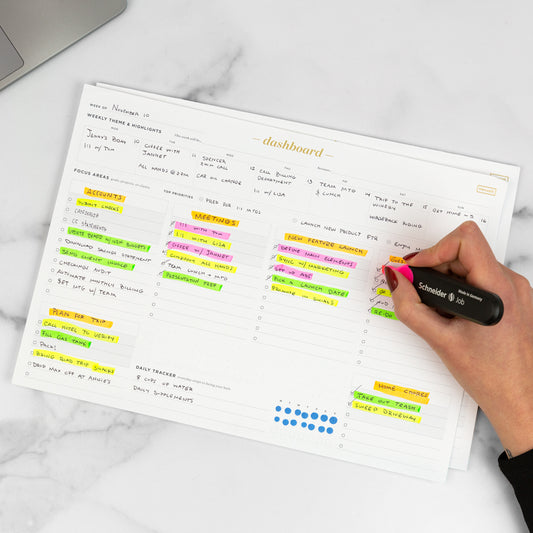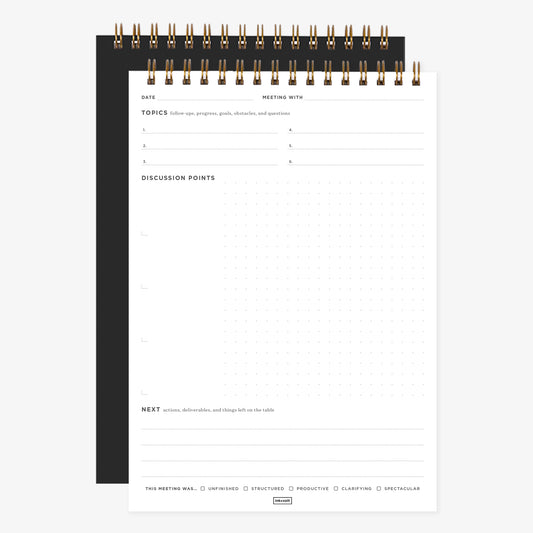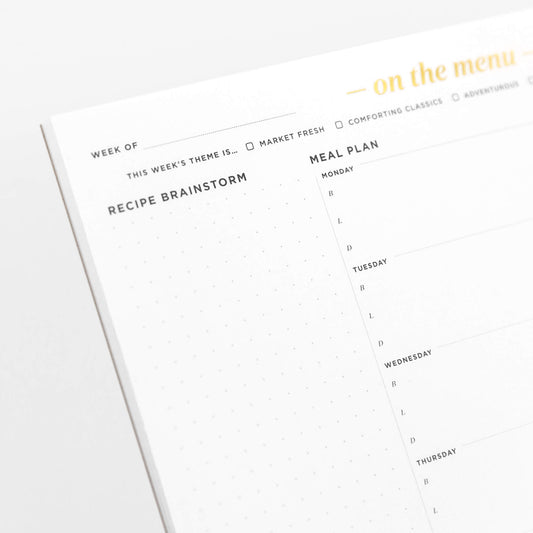Japan’s reputation for superb stationery products has garnered international love and appreciation from customers and businesses alike. But the country is also held up as a model for their business practices too.
Japanese businesses practices and customs can help you become more efficient, more productive and innovative, and better at developing exceptional business relationships.
So what Japanese business practices can you learn from and use in your day to day, whether at a personal level or for your own business? Here are some great ideas that we think you can implement and achieve a positive impact.
Learning from Japanese business culture
As businesses around the world become more connected, more and more people are exposed to new business practices and customs. Cultivating these international business relationships can be extremely rewarding if noticed and nurtured.
And we know this from experience. Ink+Volt established a relationship with the Japanese printing company Kunisawa in 2017, when we became the first American brand to sell their products exclusively.
As we sought to broaden our search for exceptional stationery products just for you, we discovered Kunisawa not only manufactures a beautiful line of stationery products (new ones are out now, here and here!), but we have also recognized a variety of common Japanese business practices and customs evidenced throughout our business relationship. These include things like:
- Being super helpful and responsive in all communications
- Valuing the relationship
- Putting an emphasis on and paying attention to the details
- Creating a product made with superior care
Here are some of the best lessons we’ve learned about Japanese business culture, that we hope you can apply to make your work life more engaging and rewarding.
1. Hospitality and customer service = Omotenashi
Customer service is a focal point for Japanese businesses, but it is also ingrained in the culture and mindset of the Japanese. The Japanese strive to provide the best possible customer service experience, showing deference to the customer, making sure their needs are met (before they even realize it), being extremely helpful, and going above and beyond to make the customer happy. This level of attention is displayed and visible everywhere you go in Japan, not just the high end establishments.
This entire concept is called omotenashi. The Michelin Guide breaks down the meaning of the Japanese word:
‘“Omote” means public face – an image you wish to present to outsiders. “Nashi” means nothing. Combining them means every service is from the bottom of the heart – honest, no hiding, no pretending.”
And the Japanese National Tourism Organization says:
“Omotenashi is hard to define in English because to understand it is to experience Japan in person. It is a sense of incredible hospitality that carries across home stays, formal ceremonies, retail, and dining. However, omotenashi goes beyond “the customer is always right;” rather, it is an implicit understanding that there are no menial tasks if the result ensures a great experience for a guest.”
How can you implement this Japanese business practice?
- Anticipate the needs of customers/clients/guests. This concept applies whether you have your own business or not. You could just as easily anticipate the needs of your internal clients, the people and teams you work with daily, your clients, or the relationships you cultivate outside of the office. Add reminders to your calendar or planner prompting you to check in with these individuals in between meetings or scheduled conversations, so you know what’s on their mind and can be helpful in ways that truly matter to them.
- Be responsive to and thoughtful in all forms of communications no matter the question or request, even if it seems menial. This doesn’t mean rushing to reply if you need time to thoughtfully respond. Instead, communicate promptly that you are looking into or working on finding an answer/solution/update and then circle back in a timely manner.
- Pay attention to and take pride in your work at all stages, even the ones that seem small or inconsequential. Someone may take notice or it may come up at a later date, so holding your work up to that level of scrutiny will support your strong reputation for professionalism and an overall level of service to others, your business, and/or employer.
2. Continuous improvement = Kaizen
Approaching life and work from a learner perspective is a very different mindset compared to the ones that western cultures emphasize, such as becoming specialized in one area of expertise.
Specialization can be problematic because the focus shifts from having a learner mentality to a teacher/master mentality, where once you have achieved a certain level, there isn’t the same drive or motivation to open yourself up to learning. Instead, a learner acknowledges or recognizes there is always more to learn, room to grow, or opportunities to improve and get better.
This Japanese concept is called Kaizen and it’s a special philosophy:
“…which translates roughly to “good change,” is a Japanese productivity philosophy that helps you organize everything you do. In short, it means “constant, continuous improvement,” and is a mindset you can apply anywhere, at any job.”
A drive and mindset to constantly do better than you did before, at a personal and business level, encourages efficiency and streamlines processes because you’re regularly looking at the same thing in different ways.
Take the car manufacturer Toyota’s production line, where this method is one of its core business practices. By not focusing solely on achieving result after result, but rather looking at the result and studying how it could have been done better or differently, results are analyzed more closely and improvements are constantly sought after.
How can you implement this Japanese business practice?
- Develop your mindset. When you’re just starting out in your career, there is a lot to learn and it takes time to develop and become confident. But you’re fresh and ready for the challenge. But maintaining that eagerness and willingness to learn as time progresses is equally important. As your career develops, look for opportunities to continue to learn both formally and informally. Ask open ended questions to smart coworkers of all ages, avoid dismissing different ideas without discussion, and seek out classes or workshops where you can hone new skills.
- Keep a close eye and focus on details, big and small, as you implement new processes (and regularly review the ones you do often). Critically evaluate the things you do every day to look for ways you can do some or all of the steps better and more efficiently. Review the outcome and results with an equally close eye to see if that’s really the best that can be done.
3. Embrace change and do your research = Nemawashi
Changes and decisions in Japan are typically determined by consensus at the group/organization level. And it doesn’t just happen at one stage or point in the process of achieving something, but it is continuous and an ongoing expectation.
This is called Nemawashi. The business Japanese Intercultural Consulting provides a few different examples of what this concept looks like, such as:
“In Japanese business, nemawashi means building a consensus using one-on-one discussion with each member of a decision-making group. It is usually conducted prior to a formal meeting.”
But it also means laying the groundwork for something, like starting a new business, venture, or project, by gathering research and discussing ideas and concerns with those involved or affected by the event:
“[A]n informal process of quietly laying the foundation for some proposed change or project, by talking to the people concerned, gathering support and feedback, and so forth. It is considered an important element in any major change, before any formal steps are taken, and successful nemawashi enables changes to be carried out with the consent of all sides.”
How can you implement this Japanese business practice?
- Search for and talk to the people who know best. Incorporate into your research conversations with those who were previously involved, have information that could be helpful to the project’s success, and talk to those who will ultimately use or be affected by the end result. This will help you identify more relevant questions to answer, concerns that can be addressed, and ideas or approaches that may be viable options.
- It may not be realistic to incorporate nemawashi if your organization doesn’t support or require it, but consensus building is still possible on a smaller team or personal level. Talking to people one on one or small groups to get their opinions can allow fellow team members an opportunity to be heard. As long as it’s done in a neutral or equal way, without favoring a person or idea, it can be a positive way to interact with team members.
- Be flexible to change and new ideas. Building consensus doesn’t mean everyone always agrees. Instead it means listening to all perspectives and then analyzing all of that data to make the best possible decision — even if it isn’t the same idea as you originally had.
What Japanese business practices have you learned from?
Though this list of three business practices is not exhaustive, they provide examples of a few practices that are dominant in Japanese culture and transportable to you wherever you are. What Japanese practices have you heard about or tried implementing?









